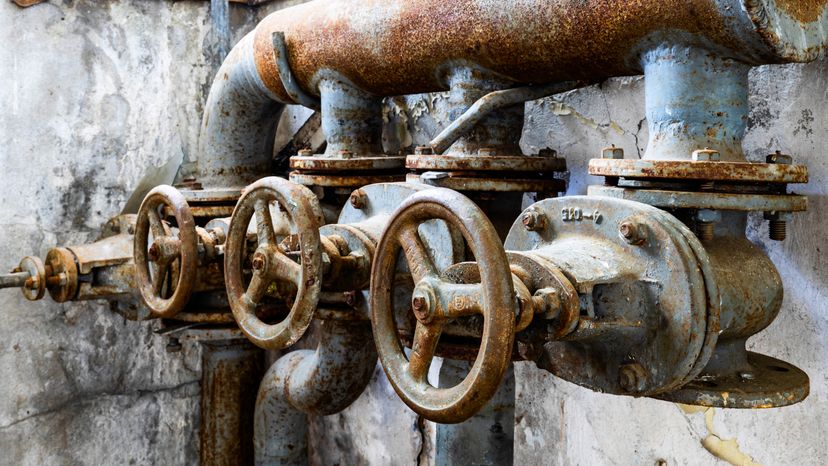
You're probably familiar with the damage rust can do to car in the winter, or a bike left outside in the rain. But what is rust, really?
Advertisement

You're probably familiar with the damage rust can do to car in the winter, or a bike left outside in the rain. But what is rust, really?
Advertisement
Rust is the common name for a very common compound: iron oxide. Iron oxide, the chemical Fe2O3, is common because iron combines very readily with oxygen — so readily, in fact, that pure iron rarely occurs in nature.
Iron (or steel) rusting is an example of corrosion: an electrochemical process involving an anode (a piece of metal that readily gives up electrons), an electrolyte (a liquid that helps electrons move) and a cathode (a piece of metal that readily accepts electrons).
Advertisement
When a piece of metal corrodes, the electrolyte helps provide oxygen to the anode. As oxygen combines with the metal, electrons are liberated. When they flow through the electrolyte to the cathode, the metal of the anode disappears, swept away by the electrical flow or converted into metal cations in a form such as rust.
For iron to become iron oxide, three things are required: iron, water and oxygen. Here's what happens when the three get together:
When a drop of water hits an iron object, two things begin to happen almost immediately. First, the water, a good electrolyte, combines with carbon dioxide in the air to form a weak carbonic acid, an even better electrolyte.
Advertisement
As the acid forms and the iron dissolves, some of the water will begin to break down into its component pieces — hydrogen and oxygen. The free oxygen and dissolved iron bond into iron oxide, in the process freeing electrons. The electrons liberated from the anode portion of the iron flow to the cathode, which may be a piece of a metal less electrically reactive than iron, or another point on the piece of iron itself.
The chemical compounds found in liquids like acid rain, seawater and the salt-loaded spray from snow-belt roads make them better electrolytes than pure water, allowing their presence to speed the process of rusting on iron and other forms of corrosion on other metals.
Advertisement
Iron reacts with oxygen and water to create rust, so the easiest way to prevent the rusting process is to keep the surface of any iron and iron alloys away from moisture.
For example, keeping your car in a dry garage, away from precipitation and changes in temperature (which can speed up the oxidation process) will extend its life.
Advertisement
But what happens when you can't simply move the metal object inside? Cathodic protection (CP) is the method used to protect everything from pipelines to water heaters and ships.
CP relies on the electrochemical reaction of electrolysis. When two metals come into contact with water, the more electropositive of the two metals will give up its electrons and corrode. In CP, iron gets paired with another, more electropositive metal, like zinc. Zinc is a common "sacrificial anode" because it will oxidize before iron.
According to the American Galvanizers Association, zinc coatings can slow rusting by 10 to 100 percent.
This article was updated in conjunction with AI technology, then fact-checked and edited by a HowStuffWorks editor.
Advertisement
Advertisement